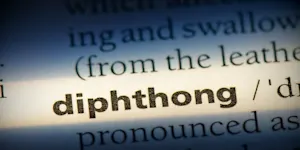What Makes This Word Tick
"Validate" is your gentle nudge of assurance. When something is validated, it's verified, confirmed, or given the official nod of approval. It carries a blend of accuracy and reliability, a promise that what you’re dealing with is bonafide and trust-worthy.
If Validate Were a Person…
Picture someone who’s always reliable and reassuring, like that friend who double-checks hotel bookings or the neighbor who waters your plants on the exact days promised. That's "Validate"—dependable and earnest, ever dedicated to making sure everything is set right.
How This Word Has Changed Over Time
Originally hailing from the Latin word "validus," meaning strong or effective, "validate" has wandered through history picking up different shades of meaning. From its early days in Middle French, implying legal approval, it’s now used in tech, science, and everyday life to mean verification and authenticity.
Old Sayings and Proverbs That Use Validate
While there aren’t direct old-timey sayings with "validate," consider the spirit of wise phrases like "The proof is in the pudding" or "Seeing is believing." These idioms sing to the same tune of seeking proof and affirmation, core essences of "validate."
Surprising Facts About Validate
You might encounter this word more than you realize—from ensuring data input forms pop up on websites with an error-free green checkmark to confirming ideas in scientific papers. It's a staple in computer science, crucial for ensuring algorithms and systems work correctly.
Out and About With This Word
Much like a gentle guardian, "validate" stars in many everyday operations, from checking parking tickets to ensuring your email address is correct before an online purchase. Think of it as the quiet referee ensuring all is fair and square in the game of life.
Pop Culture Moments Where Validate Was Used
In pop culture, validation often crops up subtly in films and books where characters seek approval—think of a mentor's nod or a supportive friend’s "You’ve got this!" These moments are all about finding validation, even if the word isn’t spelled out letter by letter.
The Word in Literature
Though it's usually behind the scenes, "validate" is the engine under the hood in mystery novels, where detectives validate clues to solve cases, or in science fiction, where characters confirm realities or technologies. Validation is an unseen hero in narratives of discovery.
Moments in History with Validate
The signing of the Magna Carta in 1215 was a grand exercise in validation, giving legal affirmation to the rights and duties between the monarchy and its subjects. Such moments in history are where validation shows its might, making agreements binding and official.
This Word Around the World
In French, "valider" has a similar use and sound, showing our global longing for reassurance. Meanwhile, in Japanese culture, where harmony and agreement are prized, validation finds its counterpart in practices that emphasize consensus and mutual respect.
Where Does It Come From?
With roots in Latin, "validate" began its journey embodying strength and efficacy. Its linguistic trek through Old French and English solidified its status as the go-to word for confirmation and authorization.
How People Misuse This Word
Some people use "validate" when they mean "implement" or "authorize." While validation assures the correctness or truth, implementation puts things into action, and authorization gives the legal or formal go-ahead.
Words It’s Often Confused With
Verify: While similar, verifying is about checking facts, not endorsing their soundness or appending legal weight.
Confirm: A kissing cousin to validation, confirmation is more about agreement than ensuring accuracy.
Authorize: Giving permission rather than checking for truth or correctness.
Additional Synonyms and Antonyms
For those moments when you need extra options, synonyms like verify, substantiate, and authenticate come in handy. On the flip side, antonyms such as invalidate, disprove, and refute provide a balancing act.
Want to Try It Out in a Sentence?
“Before signing the contract, the investor wanted to validate all the terms to ensure the deal was in their best interest.”
















